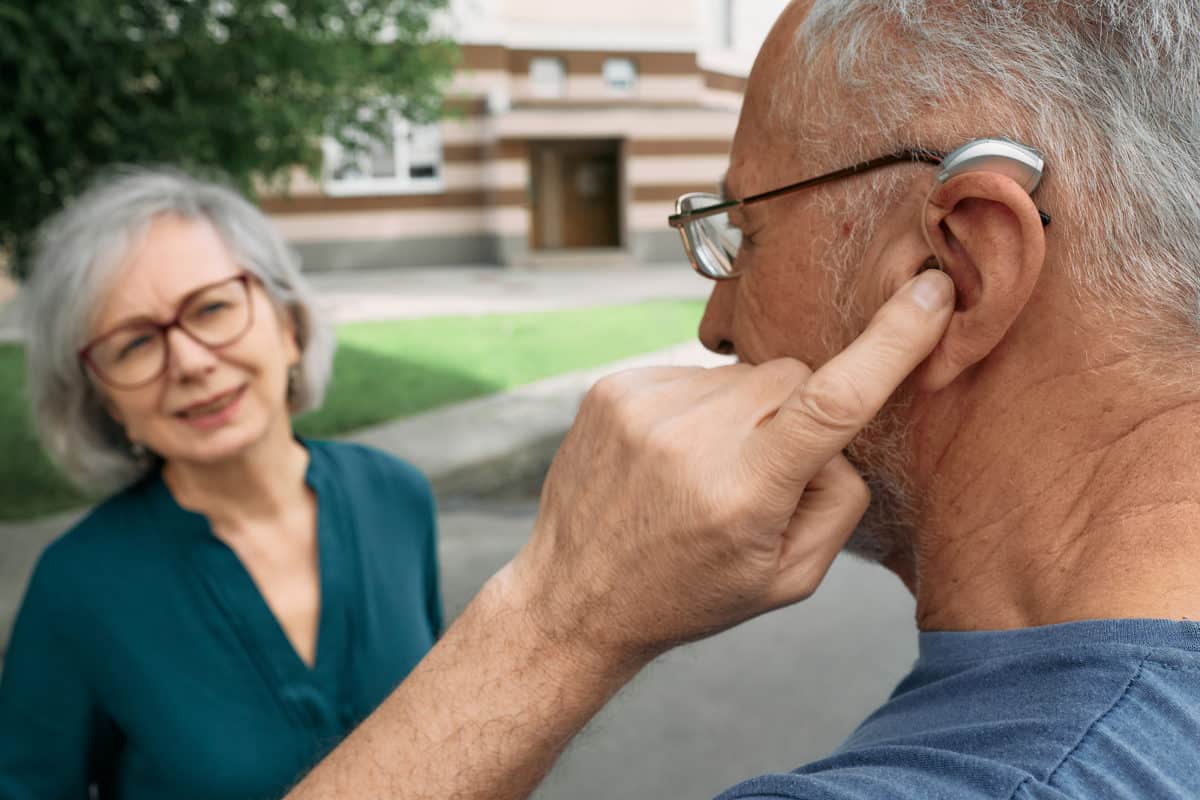Hearing loss is a condition that 15 percent of the adult population lives with. With numbers like that, it’s safe to say that most gatherings and social circles include folks who have trouble hearing. The likelihood of encountering hearing loss soars as we age. One-third of people over the age of 65 have hearing loss, a number that continues to increase as we age.
Many people report a sense of isolation from the frustrations they encounter when trying to communicate with others despite their hearing loss. One way to combat this sense is to employ useful strategies to help you in conversation.
The importance of staying connected
Before we get into general tips for communicating with hearing loss, it’s worth stating that hearing loss can lead to real problems as we lose our sense of connection with others. A common theme among those with hearing loss is that they begin to feel isolated and may even slide into depression. While those are completely normal reactions to have when your ability to easily participate in communication falters, working with our hearing loss in order to remain connected to others is an important aspect of living with the condition.
General tips
Have a disclosure strategy
It might feel intimidating to admit your hearing loss to people you are speaking with, both family and strangers alike. It’s no secret that confronting hearing loss is a scary prospect and most people wait an average of a decade before even trying intervention.
But the truth is that your hearing loss is just another fact about you, no different than the color of your hair or whether you’re great at free throws. It has no moral impact, means you are neither good nor bad because of it, and ultimately is simply a piece of information you can share to make life easier for yourself.
Giving people insight into what might trip you up in conversation allows them to help you. It can be something as simple as “I have trouble hearing, could you say that again?” Write down a sentence that feels okay to you and practice saying it in front of a mirror. The first few times you do this in practice will be uncomfortable. The great news is that every other time, it gets easier.
Speak face to face
When in conversation, situate yourself directly in front of the person you are talking to so that you can see their face. This will help provide context to the words they are speaking. You can learn a lot from a person’s facial expressions! Watching the way their mouth moves and keeping an eye on accompanying gestures can also help you to decode their words.
In addition to all that, the sound of their voice now has the best, most straightforward path to your ears.
Ask them to rephrase instead of repeat
You might ask someone to repeat themselves once, however, if you aren’t hearing them well it might have little to do with repetition and more to do with the words they are choosing. We tend to lose high frequency sounds first, which means that some words will be more difficult for a person with hearing loss to catch than others.
Ask the person you are speaking with to use different words or say, “Can you rephrase that?” Perhaps the other words they choose to use will fall more into the spectrum of what you can hear and your problem is solved. Or, you might be able to equate more meaning between the two different ways a thought has been shared.
Move to a quieter space
If you are in a conversation with someone and having problems understanding them, the problem could be your listening environment. If you are in a place with a lot of background noise, it will be more challenging for you to understand what they are saying. At a party, social or work gathering, ask to move to a quieter part of the room. Place yourself with your back to a wall so that the noise around you is lessened.
Tips for the workplace
Dealing with hearing loss in the workplace can lead to a lack of confidence. A disclosure strategy will assist you in this regard, particularly as employees with hearing loss are protected under the Americans with Disabilities Act.
In order to ease your way in the workplace you can make your preference for email communication known (over hallway chats or phone calls). Always ask for a meeting agenda in advance so you’re well prepared. Today’s Zoom culture is a boon for people with hearing loss, you can ask to engage in a video chat, which is an exponentially better scenario for people with hearing loss over a conference call.


